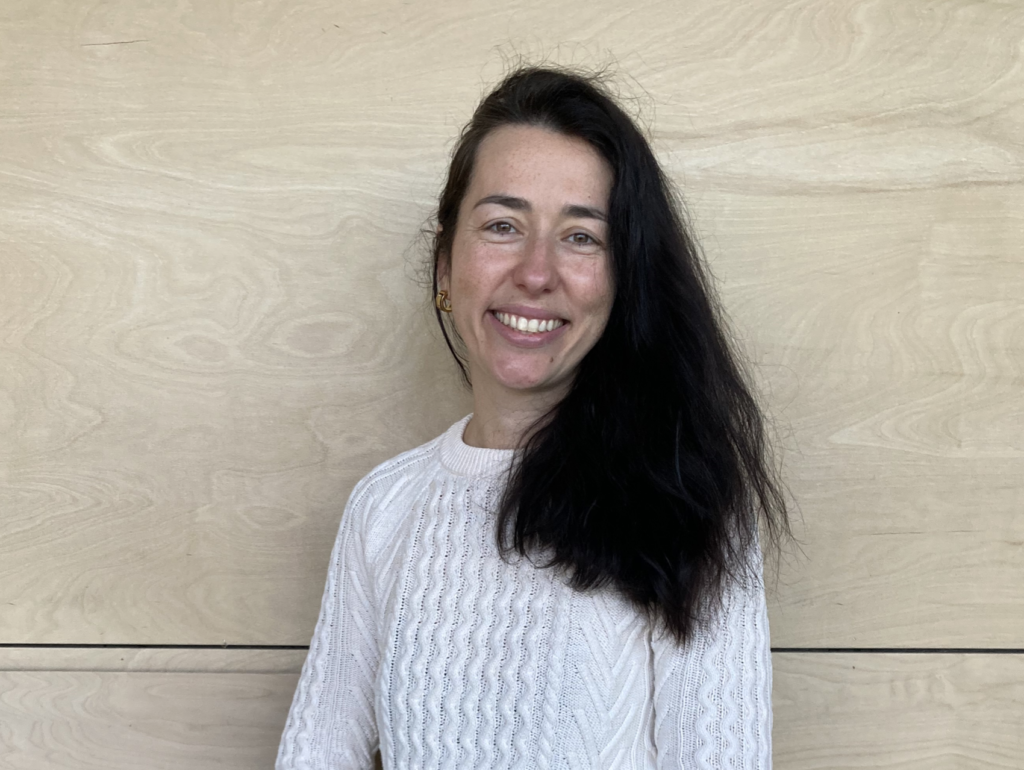
Ukrainian family in Gibsons is organizing shipments of medical supplies and food with the help of the local Rotary Club
(By News Desk)
Daria Anico-Taveras, who came to Gibsons with her family a year and a half ago from Kharkiv, in the Ukraine, is very happy with the support of Gibsonites. She is collecting donations for refugees in Poland and people who are still in Ukraine.
“We went from 200 to 1,000 kilos of donated goods in four days, and we already received $3,400 for transport costs.”
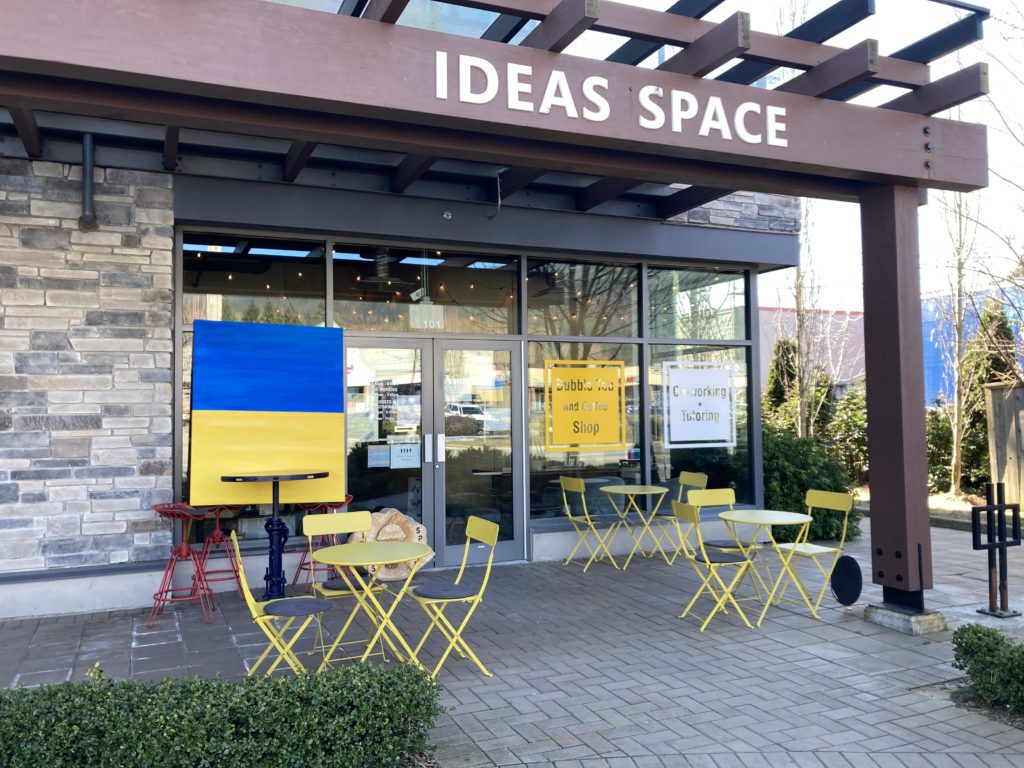
The family runs Ideas Space, an educational centre and coffee shop on the ground floor of Soames Place, next to the PetroCan in Gibsons. It has become one of four drop-off centres for donations for Ukraine, together with Harmony Hall, Banditry Cider in Gibsons and the Dragon’s Den Janitorial Supplies in Sechelt.
Bags of donations line the hallway at Ideas Space. Rotary Club members walk in and out to take them to Harmony Hall. “Are you here to help us sort?,” says one.
Anico-Taveras looks for medical supplies like gauze, vitamins, dry food, hygiene products, bedding, warm clothes, and socks. Underwear and T-shirts are also welcome if new.
If there is money left after the shipping costs she would like to buy much-needed thermal blankets in bulk.
“People bring nice packages, like a bar of soap, some chocolate, a pair of socks. It really touches my heart,” she says.
Rotary volunteers help with the shipping to Vancouver. From there, the Maple Hope Foundation and the Ukrainian Congress transport the goods to Ukraine. The first shipment is scheduled to leave next week.
The donations will be divided between refugees arriving at the Polish border and people who have stayed behind in Kharkiv.
The refugees need clothing and bedding while people in Kharkiv are best supported with food and medical supplies.
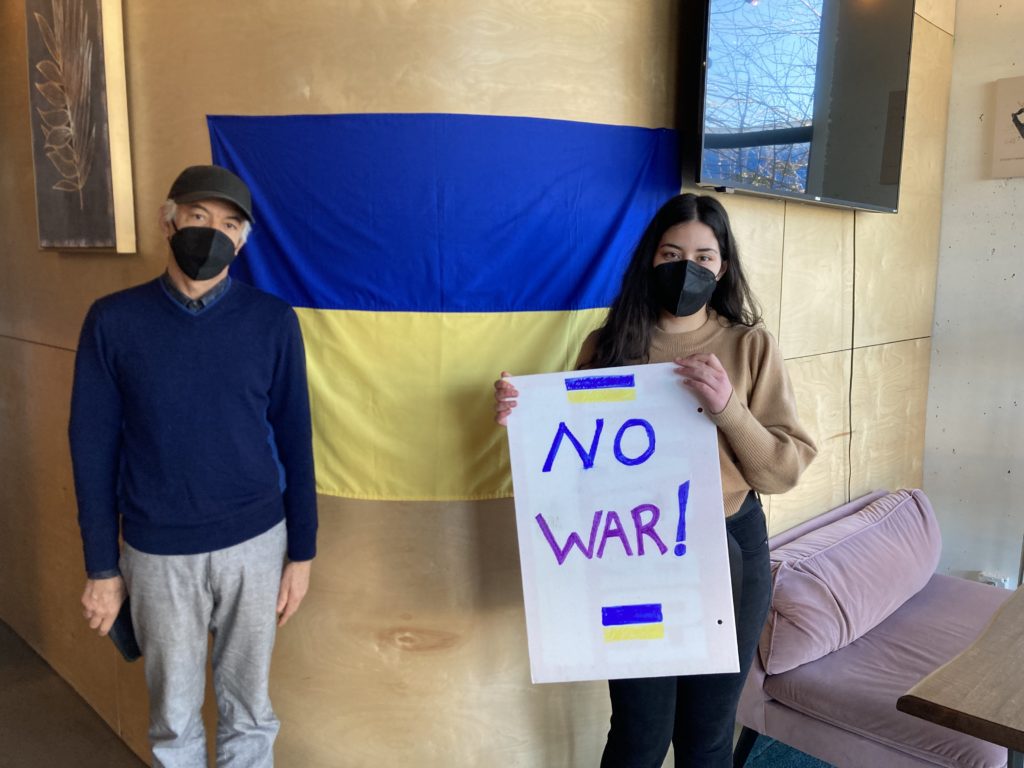
Kharkiv has lost 80 per cent of its population of 1.5 million, Anico-Taveras says. Most of them have fled the country.
“People who are still there want to die with their apartments. When Ukraine became independent in 1991, people were given the apartments they lived in during Soviet rule,” she explains. “Ninety per cent of people who live in apartments did not buy them, are not renting them. They pass them on to their children.
“If the apartment is destroyed, they can never buy another one. A teacher on a salary of $250 a month can not afford a $50,000 apartment, and renting one would cost at least $400.”
That’s why people are so mad about the attacks on apartment buildings, she says. “Once your home is gone, there’s nowhere to go.”
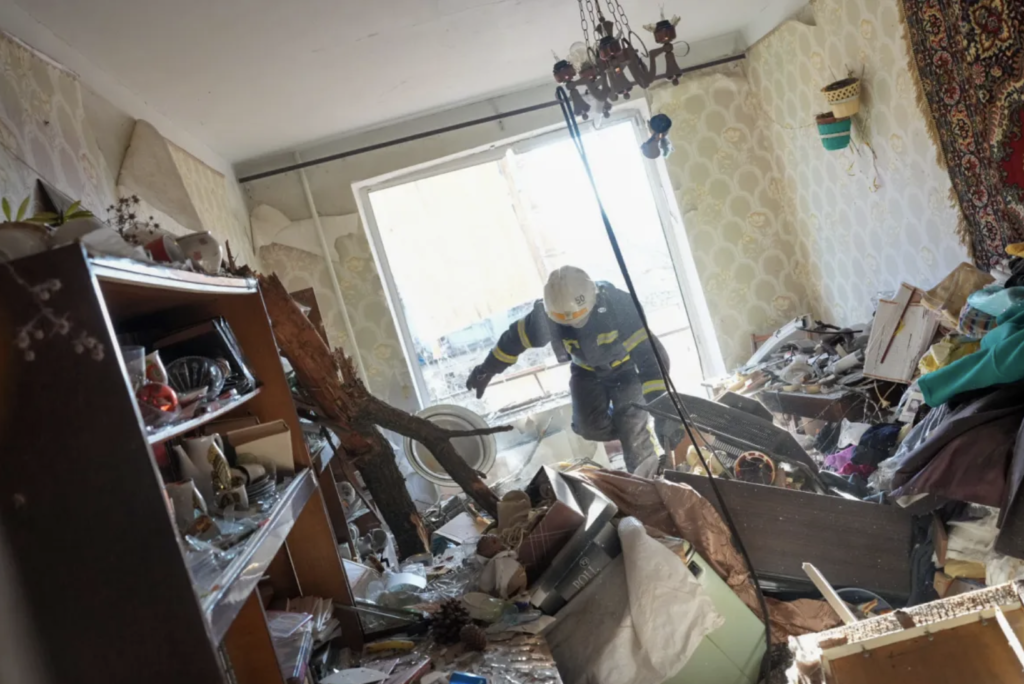
Ukrainians are shocked by what is happening in their country, she says with a sigh. “Three weeks ago, they had a normal, regular life. Nobody was expecting this. Who can believe such cruelty in the twenty-first century?”
Many have no plan at all, don’t know what to do next. “There is so much uncertainty. How long will the war last, what will happen to my job, can I come back home?
“More than 200 schools have been destroyed, and more than 60 hospitals. Lots of places of work are gone. This week a big plant producing insulation was bombed, putting all 1,000 employees out of work. A large industrial bakery is gone.
“People are so shocked they are not able to think straight. They just try to get through the day, hoping to stay alive.”
But when your spirit is not broken, you can do anything, Anico-Taveras says. “People spend a week in a cold basement and are still ready to fight because of the support they get.”
She is in contact with 50 people, most of them in Kharkiv. “Your first question is always: are you injured? Then: is your home still there? How do you feel? What do you need?”
Mental support, listening, is as important as physical support, she says.
“There is nothing more important than the internet and mobile phones to survive. As long as you are connected, help will come.”
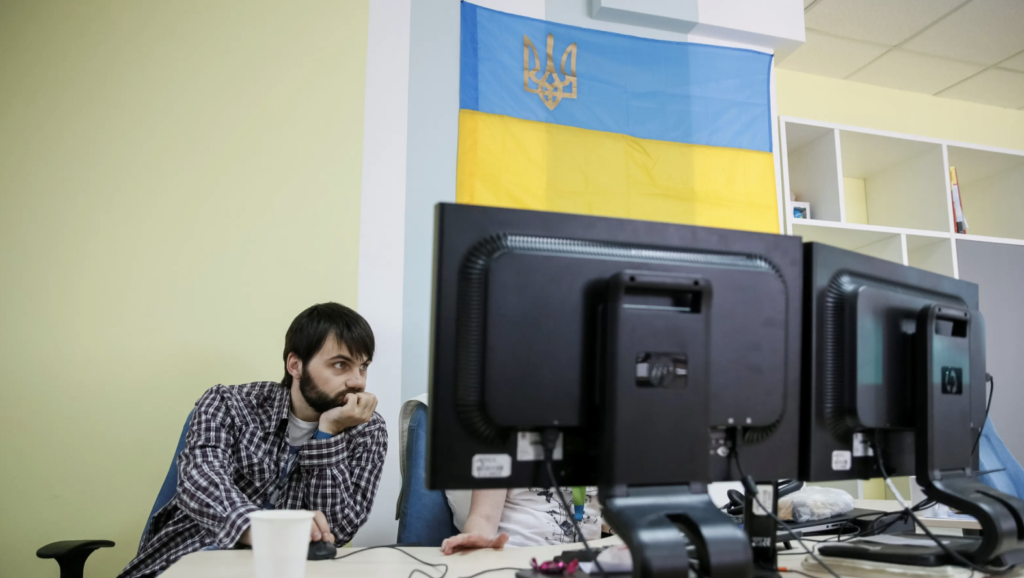
She is surprised that electricity and the internet are still largely functioning. “We didn’t expect that, we thought the Russians would cut connections. But they are not organized enough, they did not know the situation. They thought we would welcome them. So they came with three-day supplies of food and fuel.”
She expects the bombings will intensify and the internet will go down.
During the interview, she chokes up a few times. The war has affected her in unexpected ways, she says. “On the fifth day of the war, the house of a friend was bombed. They were in the basement, and were rescued. But our turtle, which we had left with them when we emigrated, was lost. I spent hours crying over that turtle. A turtle! Why, why, I kept thinking.”
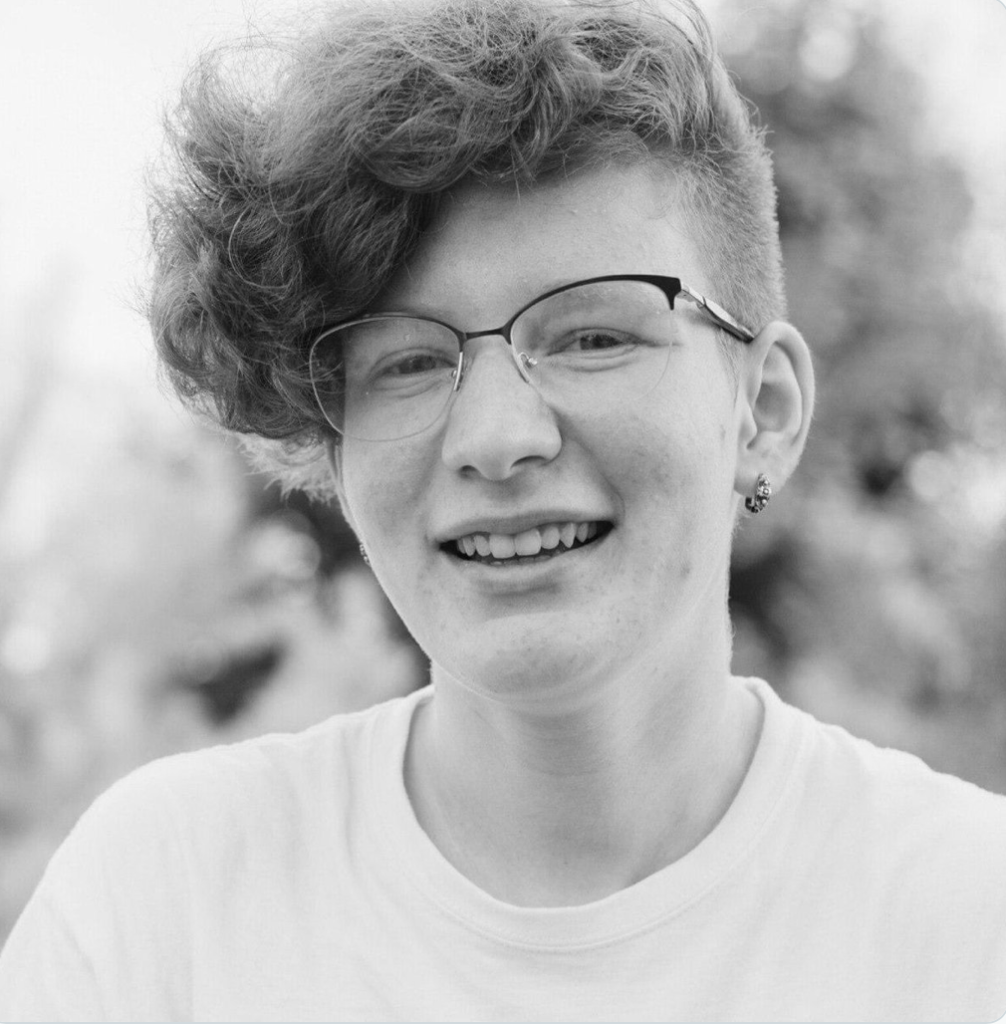
Yesterday, a friend of one of her daughters died. “The girl was above genius level in mathematics, she won silver in the European Math Olympics in 2017. She became a civil defender, they were bombed, and she died. Such a loss of Ukrainian talent. My husband had an emotional breakdown, I feel so much pain. It feels like an open wound, you stop seeing clearly from grief.”
While this was happening, an elementary school sent the Anico-Taveras family a bouquet of flowers. It really touched her. “So many kind people.”
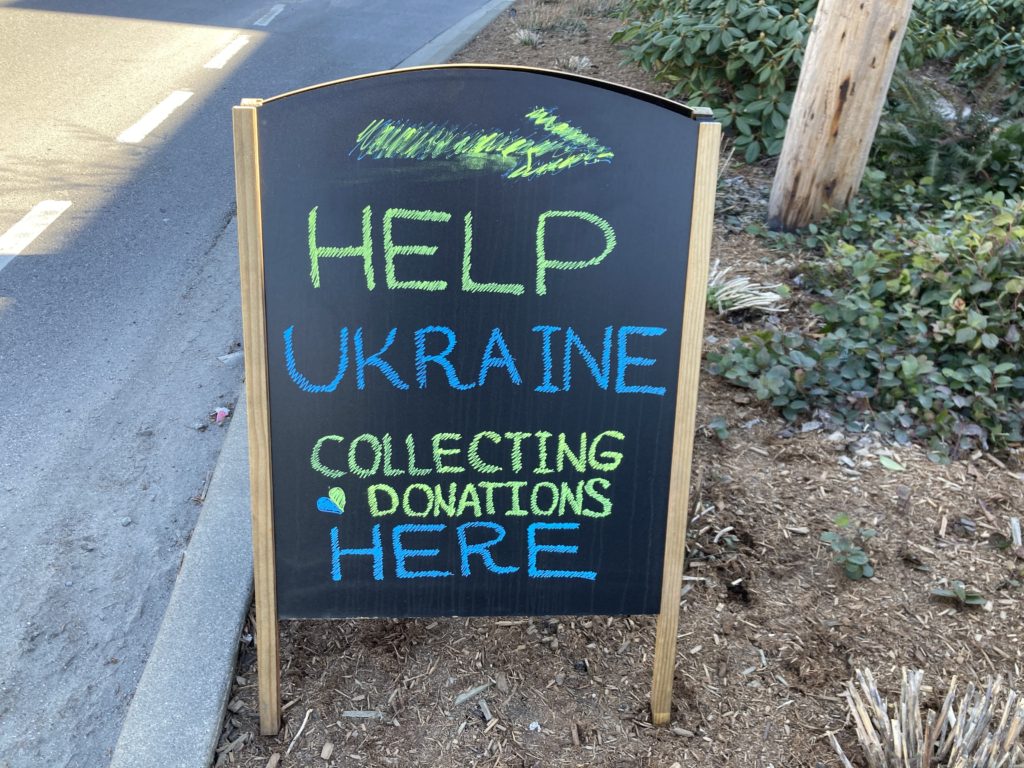
She begs Canadians to look carefully at the sources of their information. “There is so much misinformation, there are so many attempts to downplay the severity of the situation.
“I see interviews with pro-Russian people on Facebook. Their information comes from Russian media. ‘There are always two sides to a conflict, they say, you have to look at both sides.’
“People who like alternative opinions are especially open to this, and then this sort of thinking can seep into the general opinion.
“But I want to be very clear: the Ukrainians are only guilty of wanting freedom of choice. We wanted to be part of the European Union, we wanted to be a member of NATO. They [the Russians] do not want us to determine our own future.”
For Ukraine to win the war, a no-fly zone is essential, she says. “I understand the argument that the situation would escalate if Western troops engage in air battles with the Russians. But I want them to look at ways it can be done. Perhaps the situation with the nuclear power plants, which also threatens Western Europe, could be a reason to decide on a no-fly zone.
“Or donate planes, we have enough pilots. No need to send troops, we can fight. I just want civilians to stop dying.”
Donations can be dropped off at:
Ideas Space 875, Gibsons Way, Gibsons 604-212-2807
Harmony Hall, 686 Harmony Lane, Gibsons, 604-886-3919
Banditry Cider, 538 Pratt Road, Gibsons 778-855-5064
Dragon’s Den Janitorial Ltd, 5538 Inlet Avenue, Sechelt 604-885-1967
God bless you for what you are doing. I can not even imagine being in a situation like that. I would be so terrified without my home, food, clothing, being able to bathe and have my own privacy. These are just a small number of things these people have to deal with. Nobody asks for this. Stay strong and I will pray for everyone in this tragic situation. May this ugly war end soon. Thank you.
Daria spoke at the Ecumenical Prayer Service for the Ukraine, held at St. Hilda’s Sechelt on Wednesday, March 9. Her presentation was very moving. Rev. Taras Pahalochuck, Deacon from Powell River, spoke via Zoom. Also participating in the Vigil was a children’s choir, “Choralations”. Terry Coyote Aleck led a drumming circle, welcoming everyone to this special time of prayer and reflection, and Jon Eriksson and Karen Weatherington provided music. Karen and Jon presented a song that Jon had written for the occasion, sung to a traditional Ukrainian folk tune. Clergy from St. Hilda’s Anglican, Living Faith Lutheran, St. Mary’s Catholic, Holy Family Catholic, and St. Bartholomew’s Anglican as well as Terry Coyote Aleck offered a series of prayers. Participants attended in person and by Zoom, representing the support of various churches on the Sunshine Coast.
Thanks for this. It always makes it more real to hear actual, individual people’s stories in these situations–like Yulia’s, a true hero! And such a tragic loss! My condolences to those who knew and loved her.